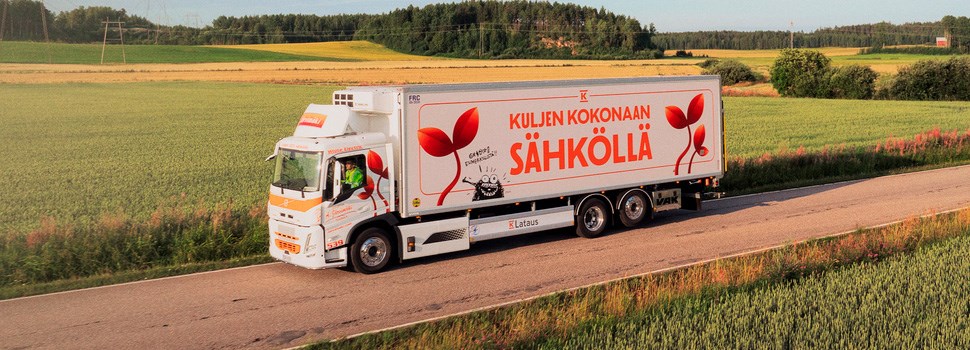
Emissions targets

For Kesko’s emissions (Scope 1 and Scope 2) from its own operations, the most significant sources are the district heat consumption as well as the fuel consumption in transportation and logistics operations. Key emission reduction measures include reducing emissions from energy use in heating by improving energy efficiency and modernising heating solutions. New electric transport equipment will also be adopted.
The majority of Kesko’s emissions is generated during the lifecycle of the products purchased and sold: that means the production, use, and end-of-life treatment of the products. This is why our climate work focuses in challenging our suppliers to emission reductions. Our target is that 67% of our suppliers have set science-based emission reduction targets by the end of 2026.
Emission reduction targets for own operations and the value chain
We have set new short-term scope 1 and 2 emission targets, aiming for a 50% reduction in emissions by the end of 2034 from the 2024 baseline.
In the autumn of 2023, we committed to setting new long-term emission reduction targets and to reduce our emissions across the value chain in line with the Science Based Target iniatiative’s (SBTi) NetZero standard.
Our earlier short-term targets, set in 2017 (2°C) and in 2021 (1.5°C), have been validated by the SBTi.
Progress of targets:
| Target | 2024 | Baseline 2023 |
| Reach 50% scope 1 and 2 emission reductions by the end of 2034, tCO2eq* | 84,576 | 77,947 |
| 67 % of suppliers by spend have set science-based emission reduction targets by the end of 2026 | 48.0% | 32.0% |
*Years not comparable due to boundary changes
Science-based emission targets replacing the previous objective of carbon neutrality for K Group
In 2020, we declared our objective of aiming for carbon neutrality for K Group. The operating environment and expectations towards companies have changed, and today, companies are expected to set science-based targets for their own operations as well as their whole value chains.
With our updated sustainability strategy 2024-26, we have replaced our previous objective regarding carbon neutrality with science-based emission targets. We will also not be offsetting emissions in 2025-2030 as previously planned. Instead, we recognise the need to significantly reduce emissions both in our own operations and throughout the value chain of the products we sell.
We challenge our suppliers to emission reductions
In order to reduce the scope 3 emissions, we encourage our suppliers to reduce emissions generated by their own operations and to set their own science-based emission targets.
We monitor progress towards this target mainly through the CDP Climate Change questionnaire, to which we encourage our major suppliers to respond. In 2024, we invited 495 suppliers to respond to the questionnaire. Measured by spend in euros, 48.0% of our suppliers have set short-term science-based emissions reductions targets.
CDP is a non-profit environmental organisation that annually collects information about actions taken by individual companies to combat and adapt to climate change. We participate in the CDP Supply Chain programme, through which we challenge our suppliers to participate in the CDP Climate change questionnaire. Read more about CDP.
Kesko's supplier - how to proceed on the path towards science-based emissions targets?
- Commit to setting short-term, science-based emissions reductions targets in accordance with the Science Based Targets initiative.
2. Measure your own and your value chain's emissions (scope 1, 2 and 3) and set emissions reductions targets based on SBTi's guidelines.
3. Seek for the validation of SBTi for your targets.
Read more about the Science Based Targets initiative.